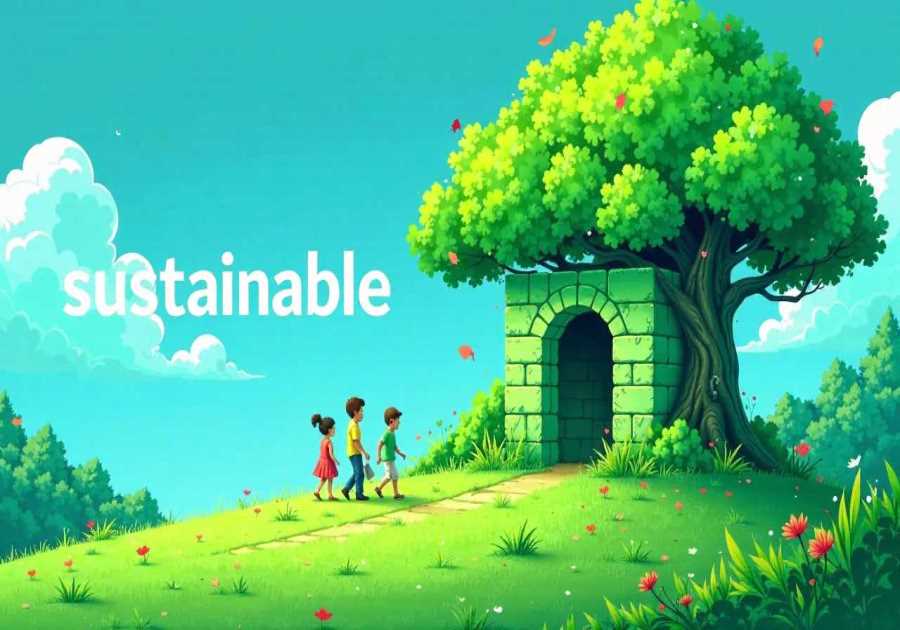
Welcome to 'Unleashing Your Green Footprint: A Guide to Sustainable Living.' In this article, we will explore practical steps you can take to reduce your environmental impact and live a more sustainable lifestyle.
By educating yourself, reducing waste, recycling, upcycling, and opting for reusable items, you can make a positive difference for the planet.
Join us on this empowering journey towards a greener future, where every action counts. Get ready to unleash your green potential and make a lasting impact.
Educate Yourself
To fully embrace sustainable living, it is essential to thoroughly educate yourself on the principles and practices of environmental conservation. Sustainable practices and environmental awareness are crucial in preserving our planet for future generations. By educating yourself, you gain the knowledge and understanding necessary to make informed decisions that minimize your carbon footprint and contribute to a healthier environment.
Start by researching sustainable practices and environmental initiatives. Stay updated on the latest news and advancements in renewable energy, waste reduction, and conservation efforts. Attend workshops, seminars, and webinars to deepen your understanding of sustainable living. Engage with like-minded individuals and join environmental organizations to connect with a community that shares your passion for a greener future.
Take action by implementing sustainable practices in your daily life. Reduce your energy consumption by using energy-efficient appliances, switching to LED lights, and conserving water. Opt for eco-friendly transportation options such as walking, biking, or carpooling. Practice waste reduction by recycling, composting, and avoiding single-use plastics.
Reduce Waste
One effective way to minimize environmental impact is by implementing strategies to reduce the amount of waste generated.

By adopting a zero waste lifestyle, individuals can make a significant difference in preserving our planet for future generations.
One key aspect of reducing waste is through composting. Composting is the process of converting organic waste, such as food scraps and yard trimmings, into nutrient-rich soil. Instead of throwing these materials away, they can be transformed into a valuable resource for gardening and agriculture.
Composting not only reduces landfill waste but also helps to nourish the soil and promote plant growth.
By incorporating composting into our daily routines, we can actively contribute to a healthier and more sustainable environment.
Let's take action today and start reducing waste through composting, leading the way towards a greener future.
Recycle
Implementing recycling practices is another crucial step towards reducing our environmental impact and promoting a more sustainable future. Recycling plays a vital role in waste management as it helps divert materials from landfills and reduces the need for extracting and processing new raw materials. By recycling, we can conserve natural resources, save energy, and reduce greenhouse gas emissions. Recycling also helps create job opportunities and stimulates economic growth in the recycling industry.
To effectively recycle, it is important to separate recyclable materials from general waste. Items such as paper, plastic, glass, and metal can be recycled and turned into new products. Educating ourselves and our communities about recycling guidelines and participating in local recycling programs are essential actions we can take to make a positive impact.

Upcycle
One way to reduce waste and promote sustainable living is by repurposing materials through the process of upcycling.
Upcycling is a creative DIY project that transforms old or unwanted items into something new and useful.
By repurposing materials, we can give them a new lease on life and prevent them from ending up in landfills.
Upcycling not only reduces waste but also reduces the need for new resources and energy-intensive manufacturing processes.
It allows us to create unique and personalized items while expressing our creativity.
From turning old t-shirts into reusable shopping bags to transforming wooden pallets into furniture, the possibilities for upcycling are endless.
Opt for Reusable Items
To embrace a more sustainable lifestyle, it is essential to prioritize the use of reusable items. By opting for eco-friendly alternatives, we can reduce our waste and minimize our impact on the environment. Here are five ways you can incorporate reusable items into your daily life:

- Carry a reusable water bottle: Investing in a durable water bottle will not only save you money in the long run, but also prevent the need for single-use plastic bottles.
- Bring your own shopping bags: Instead of relying on plastic bags at the grocery store, bring your own reusable bags to carry your purchases.
- Use cloth napkins: Replace disposable paper napkins with reusable cloth napkins to reduce paper waste and add a touch of elegance to your dining experience.
- Pack a lunch in reusable containers: Avoid using disposable plastic bags and wrap by packing your lunch in reusable containers and wraps.
- Say no to disposable coffee cups: Invest in a reusable coffee mug or thermos to enjoy your favorite hot beverages on the go without contributing to landfill waste.
Frequently Asked Questions
How Can I Calculate My Carbon Footprint and Understand Its Impact on the Environment?
To calculate your carbon footprint and understand its environmental impact, you can use online calculators that consider factors like energy usage, transportation, and waste. This will help you make informed decisions and take action towards reducing your emissions.
What Are Some Effective Ways to Reduce Water Consumption in My Daily Life?
To reduce water consumption in your daily life, consider implementing water saving techniques such as fixing leaks, installing low-flow fixtures, and using eco-friendly appliances. These actions can help conserve water and contribute to sustainable living practices.
Are There Any Alternatives to Single-Use Plastic Products That Are Both Eco-Friendly and Affordable?
There are numerous eco-friendly alternatives to single-use plastic products that are also affordable and sustainable. These options include reusable water bottles, cloth shopping bags, and stainless steel straws, among others.
What Is the Best Way to Dispose of Electronic Waste in an Environmentally Responsible Manner?
Responsible recycling and e-waste management are crucial for minimizing environmental impact. To dispose of electronic waste in an environmentally responsible manner, individuals can explore options such as recycling programs, donation centers, or seeking out certified e-waste recyclers.
How Can I Encourage My Community to Adopt Sustainable Practices and Make a Collective Impact on the Environment?
To encourage community adoption of sustainable practices and make a collective impact on the environment, focus on community engagement and promoting sustainable transportation options. Engage residents through education, events, and incentives to inspire lasting change and create a greener future.






